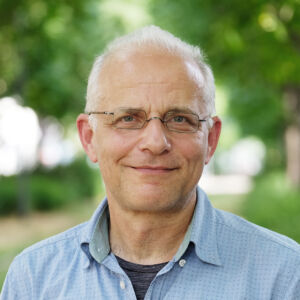Suffizienz im Stadtquartier - Praktiken und Formate zur sozialen Diffusion in den Bereichen Wohnen, Mobilität, Ernährung
Lars-Arvid Brischke et al.
In three real-world laboratories, SuPraStadt II is investigating how the needs of residents in the fields of housing, open space and mobility can be reconciled with the ecological requirements of sustainability.
Building on the previous project SuPraStadt, the research project SuPraStadt II investigates in three real laboratories how the needs of residents in the fields of housing, open space usage and mobility can be reconciled with the ecological requirements of sustainability. ISOE is supporting the real laboratory in Kelsterbach: together with residents from the Mainhöhe district, sufficiency practices in the areas of food and mobility are being developed, tested and evaluated. The focus is on the question of how the dissemination of such practices can be supported and promoted in urban neighbourhoods.
Sufficiency practices are the theoretical starting point of the project. Sufficiency means shaping the proportionality of social relations with the natural and social environment. In SuPraStadt II, real labs are used to analyse which tools and methods, such as workshops, participatory actions and learning formats, are suitable for disseminating sufficiency practices. Real labs allow measures to be implemented collectively and their impact to be evaluated at the same time. The aim is to make sufficiency visible, tangible and attractive in the everyday lives of citizens as an individual and collective way of behaviour and consumption. To date, there is no sufficiently empirical basis for determining and evaluating the ecological and social effects of sufficiency practices in municipalities. There has also been little research into how such practices can be promoted and disseminated. By closing this gap, the SuPraStadt II project aims to contribute to the “great transformation”.
In the Kelsterbach Real Lab, the ISOE team focuses on food and mobility practices that should lead to an improvement in the quality of life and social participation as well as to a reduction in resource consumption and negative environmental impacts. In the field of nutrition, the "Edible City" format promotes the home growing of food in the outer areas of Mainhöhe housing estate by its residents. In the field of mobility, measures are being carried out to strengthen the competence of bike-sharing services available in the settlement. The aim is providing the opportunity to get to know the lending process, to identify opportunities for everyday use in and to gain riding experience. In addition, the ISOE team supports the project partner NHP in developing concepts for mobility and parking space so that they are more sufficiency-oriented. Methodologically, the focus is on activation, participation, knowledge transfer and communication.
Sufficiency strategies are an important element of sustainable development because efficiency gains are often offset or overcompensated by rebound effects. Sufficiency stands for changes in consumption patterns, everyday routines, social and cultural practices, as well as changes in lifestyles and economic practices that help stay within ecological limits. Unlike ecological efficiency, which is also important for sustainability, the term sufficiency does not focus on providing goods with the lowest possible use of ecological resources. Rather, the focus is on a sparing use of space, time, market and property. Sufficiency practices in urban neighbourhoods can be the communal use of space, new forms of local cooperation, offers for the prolonged use of goods (e.g. through repair workshops), the promotion of local mobility, or self-initiated, communally organised services, which by definition are a more ecologically compatible and often cheaper alternative to market-mediated access to goods and services. In this research project, sufficiency practices are investigated, (further) developed and evaluated in a transdisciplinary design. Thus, ISOE is investigating how sufficiency practices spread in urban neighbourhoods and which social milieus participate in such practices.
The project “SuPraStadt II – Quality of Life, Participation and Resource Conservation through Social Diffusion of Sufficiency Practices in Urban Neighbourhoods” is funded by the Federal Ministry of Education and Research (BMBF), funding priority “Implementation of the Flagship Initiative Future City”.
Lars-Arvid Brischke et al.
Tilmann Hüppauff et al.
Immanuel Stieß, Laura Trost, Malaika Rahm
How much do we really need for a good life? Which services and infrastructures enable a sufficient standard of living, consumption, or nutrition?
Go to Topic Page

